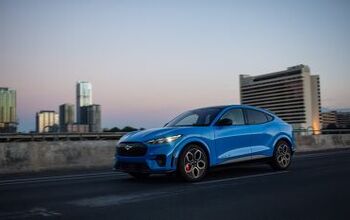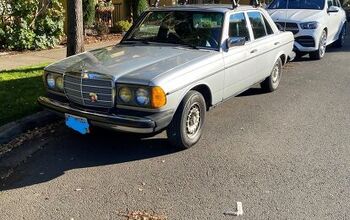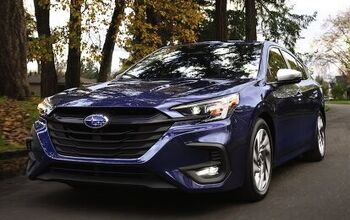Honda Pooling With Tesla for EU Emissions Compliance

Honda Motor Co. will be accompanying Fiat Chrysler Automobiles in pooling its emissions with electric vehicle manufacturer Tesla in an attempt to adhere to CO2 limits mandated by the European Union. For 2020, the average emissions of all vehicles sold within the region must not exceed 95 grams of CO2 per kilometer. Companies failing to comply will be forced to pay the government sizable fines as it readies even higher targets for next year.
Over half of automakers planning to move product inside Europe next year are already assumed to fail however, resulting in a series of rushed hybrid/EV products, the obliteration of the diesel-powered passenger vehicles, and companies desperate to team up with the manufacturers that came in under the regulatory limits.
From Bloomberg:
Underwhelming sales of Honda e electric cars probably contributed to the carmaker needing help to achieve compliance in Europe, Matthias Schmidt, an independent auto analyst in Berlin, wrote in a blog post. Tesla is likely to mount a big fourth-quarter sales push helped in part by exports to Europe from its plant in China, he said, allowing the company to assist both Fiat Chrysler and Honda.
A Honda spokesperson said that pooling with Tesla and Fiat Chrysler is an additional measure to comply beyond launching the e and hybrid versions of its CR-V and Jazz (Fit) models.
There’s a lot of money being thrown around with EV manufacturers like Tesla poised to make millions via carbon sales every single year until legacy manufacturers can keep pace. But the Society of Motor Manufacturers and Traders (SMMT) has been sounding the alarm that the regulatory measures established in the EU haven’t actually been tamping down real-world emission figures. Like the United States, which has seen practical fuel economies stagnate for years as more customers opt into buying SUVs and crossovers, the European Union’s fleet CO2 averages have witnessed a similar trajectory. In 2018, EU CO2 averages went from 118 g/km to 120.5 g/km and continued to rise to 122.4 g/km in 2019.
Over the summer, the European Commission warned the industry to significantly reduce emissions or ready itself for larger fines in 2021 — something which now seems unavoidable. It’s hardly what anyone wants to hear while pandemic lockdowns, instituted by the same people mandating emission limits, ravaged automotive sales this year.
[Image: Anastasiia Moiseieva/Shutterstock]

A staunch consumer advocate tracking industry trends and regulation. Before joining TTAC, Matt spent a decade working for marketing and research firms based in NYC. Clients included several of the world’s largest automakers, global tire brands, and aftermarket part suppliers. Dissatisfied with the corporate world and resentful of having to wear suits everyday, he pivoted to writing about cars. Since then, that man has become an ardent supporter of the right-to-repair movement, been interviewed on the auto industry by national radio broadcasts, driven more rental cars than anyone ever should, participated in amateur rallying events, and received the requisite minimum training as sanctioned by the SCCA. Handy with a wrench, Matt grew up surrounded by Detroit auto workers and managed to get a pizza delivery job before he was legally eligible. He later found himself driving box trucks through Manhattan, guaranteeing future sympathy for actual truckers. He continues to conduct research pertaining to the automotive sector as an independent contractor and has since moved back to his native Michigan, closer to where the cars are born. A contrarian, Matt claims to prefer understeer — stating that front and all-wheel drive vehicles cater best to his driving style.
More by Matt Posky
Latest Car Reviews
Read moreLatest Product Reviews
Read moreRecent Comments
- Ras815 Tesla is going to make for one of those fantastic corporate case studies someday. They had it all, and all it took was an increasingly erratic CEO empowered to make a few terrible, unchallenged ideas to wreck it.
- Dave Holzman Golden2husky remember you from well over decade ago in these comments. If I wanted to have a screen name that reflected my canine companionship, I'd be BorderCollie as of about five years go. Life is definitely better with dogs.
- Dave Holzman You're right about that!
- EBFlex It will have exactly zero effect
- THX1136 What happened to the other companies that were going to build charging stations? Maybe I'm not remembering clearly OR maybe the money the government gave them hasn't been applied to building some at this point. Sincere question/no snark.


































Comments
Join the conversation
"Electric... pickup trucks are not the answer!" Someone should contact Mike Manley, stat: https://tinyurl.com/y6l2zzmh
Let the games begin.